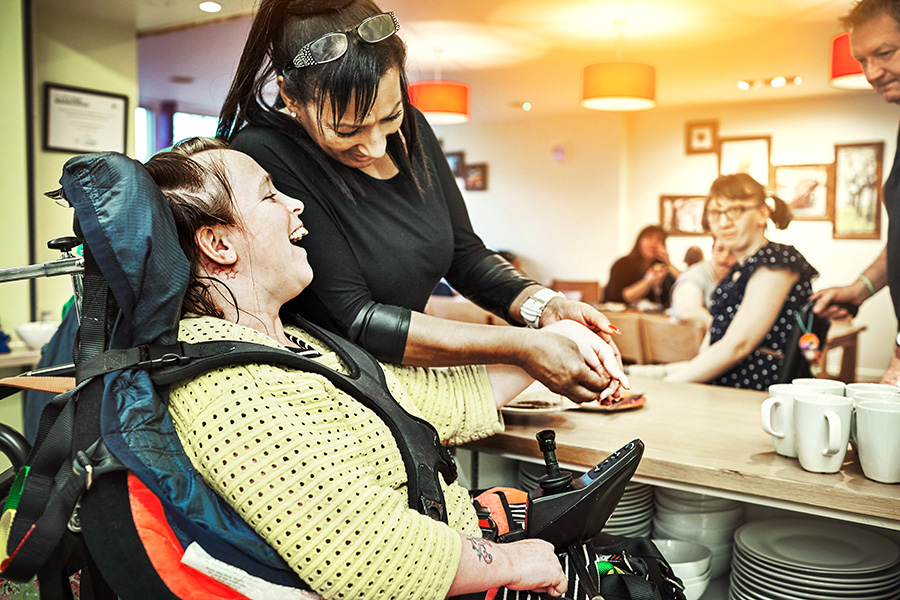Caring for a person with Alzheimer’s who exhibits anger or aggression can be frustrating – as well as emotionally, mentally, or even physically tolling. Anger and aggressive behavior can occur randomly, without warning or apparent reason. However difficult it may be, try to keep in mind that the person with Alzheimer’s is not acting aggressively on purpose. There are many causes of aggression and anger, including physical or emotional discomfort, lack of communication, and even environmental factors.
Things to Ask Yourself
If you are experiencing anger in a person or people with Alzheimer’s, here are some questions to ask yourself regarding factors that may be influencing or affecting their behavior:
- Physical Discomfort
- Could they be in pain or any sort of discomfort?
- Are they tired?
- Could they be hungry or thirsty?
- Are medications causing side effects that could be uncomfortable or unsettling?
- Environmental Factors
- Is there overstimulation with noise, or is the environment foreign or cluttered?
- Could they be feeling mentally or physically lost?
- Is the environment causing stress? Most people who have Alzheimer’s function better during a specific time of day. Consider timing when scheduling appointments, treatments, or activities to alleviate any distress or discomfort.
- Poor/Lacking Communication
- Are your words clear and simple?
- Are there too many statements or questions at a single time? Could it be overwhelming them?
- Are they picking up on your personal feelings of stress, irritability, anger, etc.?
- Could they be confused?
Tips for Responding
There are helpful ways to respond to a person exhibiting aggression or anger.
- Try to identify the cause of the behavior
- Try to rule out pain as the cause of behavior as quickly as possible to prevent medical issues.
- Focus on the person’s feelings, not facts — consider his/her emotions and feelings behind words and actions.
- If you get upset, try not to let it show — it will affect the person negatively.
- Be positive and reassuring during an anger episode.
- Limit outside and environmental distractions when possible.
- Consider pursuing or introducing relaxing or calming activities.
- Shift the person’s focus to a new activity or topic — the immediate environment or topic of conversation may be evoking an aggressive response. For example:
- (S)he wants to go home. Instead of telling them that they can’t go home, redirect the conversation by asking what they love about their home. By shifting the conversation, even subtly, you can reduce the stress and anger.
- If you become overwhelmed, take time for yourself when possible; angry or aggressive episodes can be difficult to handle. Sometimes a brief break can help you gain a handle on your emotional response.
- Ensure the safety of yourself and the person exhibiting anger. If the person is unable to calm down, call 911 and/or seek assistance from others. Be sure to inform medical responders that the person has Alzheimer’s.
Related: National Alzheimer’s Disease Awareness Month: Coping with Behaviors
Sources:


























